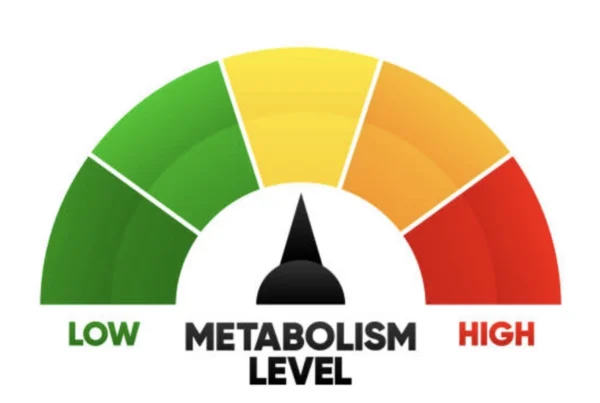Introduction to Self-Care Baths: Nurturing your body and soul.
Welcome to my introduction article on baths for self-care. Follow me on Medium or Substack to read future articles in the series this spring and summer. Some of the topics will be about setting the mood, preparing your bath, choosing products/skincare, during and after the bath and post bath routine.
Self-Care Bath
When was the last time you soaked in a warm tub using aromatic ingredients, tea, and music or a good book? Do you take out time to unwind, de-stress and pamper yourself? I cherish my (mostly) kid-free quiet bath time and try to make the most of it.
The goal of a self-care bath is to take care of your body and mind and enjoy some calm and/or rejuvenation and relaxation. Have a tummy ache? Take a bath. Stuffy nose? Take a bath. Feeling anxious, grumpy or tired? Take a bath. I think this quote from Sylvia Plath says it all.
“There must be quite a few things a hot bath won’t cure, but I don’t know many of them. Whenever I’m sad I’m going to die, or so nervous I can’t sleep, or in love with somebody I won’t be seeing for a week, I slump down just so far and then I say: ‘I’ll go take a hot bath.’
I meditate in the bath. The water needs to be very hot, so hot you can barely stand putting your foot in it. Then you lower yourself, inch by inch, till the water’s up to your neck.
I remember the ceiling over every bathtub I’ve stretched out in. I remember the texture of the ceilings and the cracks and the colors and the damp spots and the light fixtures. I remember the tubs, too: the antique griffin-legged tubs, and the modern coffin-shaped tubs, and the fancy pink marble tubs overlooking indoor lily ponds, and I remember the shapes and sizes of the water taps and the different sorts of soap holders.
I never feel so much myself as when I’m in a hot bath.”
― Sylvia Plath, The Bell Jar
self-care
[ self–kair ]noun
- the act of attending to one’s physical or mental health, generally without medical or other professional consultation (often used attributively):It’s been a rough week, so this weekend is all about self-care through exercise.
- the products or practices used to comfort or soothe oneself (often used attributively):Seeing friends is my self-care. Taking a bath is a great self-care activity when you’re feeling stressed.
Why should I take a bath?
I know that a lot of people are devoted shower people. But there are many reasons you should give a nice warm bath a try. A bath can be the most glorious form of self-care when you put some thought and energy into it. According to the Cleveland Clinic, taking a bath has many benefits both mental and physical.
Promote Relaxation
A warm bath can help relax muscles and relieve tension which contributes to a feeling of relaxation. Bathing engages your senses: the warmth of the water on your skin, the scent of oils or flowers, the sound of the water or your music, the taste of your tea, coffee or wine, and the plants in your bathroom all help to create a soothing atmosphere.
Your bath time can be a quiet time for calm relaxation and self-care. It can be your stress-free break from the demands of the day where you can focus on yourself for a little while.
“Happiness is a hot bath on a Sunday afternoon.”
― Adrienne Posey
Reduce Stress and Anxiety
Warm baths create a calm and restful physical environment. Taking a bath helps reduce cortisol, the “stress hormone.” Being immersed in a warm bath is calming which helps you relax and reduce stress levels. It helps improve circulation, calm your nervous system, and releases endorphins which make you feel good.
“I love the magic of a hot bath, how time pauses, and every grievance melts away.”
― Richelle E. Goodrich, Smile Anyway: Quotes, Verse, and Grumblings for Every Day of the Year
Get Clean
As someone with dry skin, especially in the winter, I love to take baths. As you soak, your skin softens which makes it easier to get rid of dead skin cells. This will help make your skin silky smooth and help you get a better shave. It also makes it easier to shave while you’re sitting.
Warm water helps to open up your pores to get a better clean. This can help in times of stress as stress can stimulate the production of sebum (the skin’s natural oil) which can clog pores and cause acne.
Soothe Joint and Muscle Pain
Everyone knows that applying heat to sore muscles helps them relax. So why not apply it to all your muscles at the same time? And it’s even better when you add Epsom salts.
Soaking in a warm bath with Epsom salts can help improve blood circulation. Epsom salts, or magnesium sulfate is absorbed through the skin in a bath. They are made of magnesium, sulfur, and oxygen. Magnesium is significant in muscle function and relaxation and a deficiency can mean cramps, twitches, and tremors.
Soaking in Epsom salts in a warm bath can help. Epsom salts also have anti-inflammatory properties to help with the swelling and inflammation.
To use Epsom salts for sore muscles, simply add them to a warm bath and soak for at least 15-20 minutes. You can also enhance the relaxation and pain-relieving effects by adding essential oils or other soothing ingredients to your bath.
Anti-Aging
Cortisol is a contributor to accelerated aging of the skin. Excessive stress can adversely affect the skin. It can affect the production of collagen which helps with the elasticity and firmness of the skin which results in sagging and wrinkles.
Cortisol can cause inflammation which causes skin issues like redness, swelling, and irritation. In the long term, this chronic inflammation can contribute to conditions like acne, eczema and psoriasis.
Too much cortisol can also impede wound healing and thus slow down the healing of cuts and bruises. It can also weaken the skin’s barrier function. This makes the skin more susceptible to environmental damage.
Stress management is a good way to minimize the effects of cortisol. Some good ways to do this are taking a bath, regular exercise, mindfulness meditation, adequate sleep, and doing things that you enjoy.
Sleep Quality
Incorporating a bath into your bedtime routine can be a relaxing and effective way to promote better sleep and improve your overall sleep quality. Taking a bath in warm water is relaxing and helps you wash the day away. Do you remember the old commercials that said “Calgon, take me away?”
A warm bath will raise your temperature. When you get out of the bath, your body temperature drops. This drop in temperature can signal to your body that it’s time to sleep, as it mimics the natural drop in body temperature that occurs during the evening.
Reducing the stress hormone cortisol can help you sleep as cortisol can tell the body that it needs to stay alert and awake. Try reducing stress with activities like taking a bath, relaxation techniques, mindfulness practices, and regular exercise. Creating a calming bedtime routine and having a comfy place to sleep can also help.
Check out my YouTube Video below on the benefits of taking a bath.
https://www.youtube-nocookie.com/embed/dqoQJW9Uwdw?rel=0&autoplay=0&showinfo=0&enablejsapi=0







